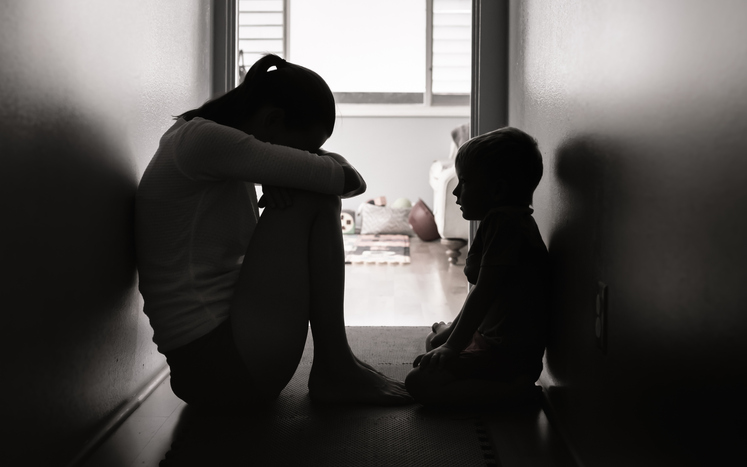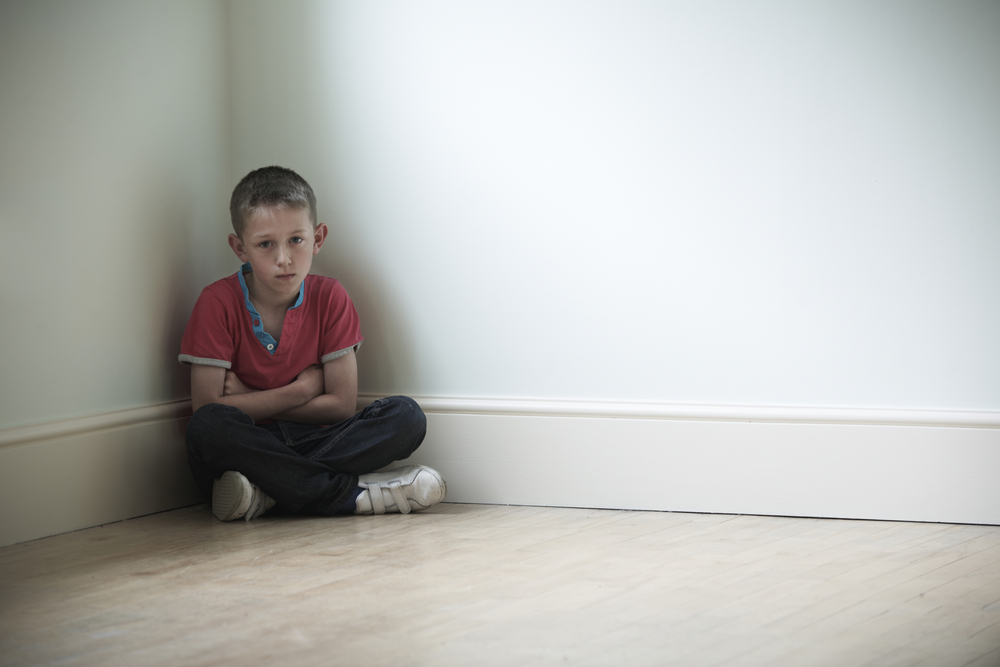Ever felt a little off or different, or like you just don’t fit the mold? Maybe you’ve experienced patterns in your behavior that don’t make a whole lot of sense. However, sometimes those patterns can stem from early experiences, like not feeling loved or seen as a child. These experiences can shape how we interact with the world and ourselves as we grow up. With that in mind, here are some common traits that can show up in adulthood if you didn’t feel loved as a child.
1. You have a hard time trusting people.

Maybe you feel like everyone has an ulterior motive, or you find it super tough to let your guard down and believe someone’s got your back. This can be a direct result of not experiencing consistent love and support in childhood. It’s like your internal alarm system is constantly on high alert, making it hard to fully relax and trust in relationships.
2. You tend to isolate yourself.

Sometimes it feels easier to just be alone, doesn’t it? Socializing might feel draining or overwhelming. Perhaps you’ve noticed you pull away from friends and family, preferring your own company. This isolation can be a defense mechanism to protect yourself from potential hurt or rejection, especially if those feelings were familiar in your earlier years, Verywell Mind explains.
3. You’re always striving for perfection.

Do you feel like you have to be the best at everything you do? Like anything less than perfect is a failure? This constant striving can stem from a need for validation and approval that wasn’t met during childhood. It’s like you’re trying to prove your worth through achievements, hoping that finally, you’ll be seen and loved.
4. You struggle with low self-esteem.

Do you often doubt your abilities or feel like you don’t measure up? This lack of self-worth can be deeply rooted in childhood experiences of not feeling valued or appreciated. It’s like a negative voice in your head keeps replaying those old messages, making it hard to see your own strengths and beauty.
5. You’re overly sensitive to criticism.

Does any form of feedback, even constructive criticism, feel like a personal attack? This heightened sensitivity can develop when your self-worth was constantly questioned or belittled as a child. It’s like your emotional armor is paper-thin, making it difficult to handle even minor critiques without feeling deeply hurt.
6. You seek validation from anyone who will offer it.

Do you find yourself constantly seeking approval from others? Like you need constant reassurance that you’re doing okay or that you’re worthy of love? This can be a direct result of not receiving enough positive reinforcement and affection in childhood. It’s like you’re trying to fill an emotional void by seeking external validation.
7. You have difficulty setting boundaries.

Are you a people pleaser? Do you find it hard to say no or stand up for yourself? This inability to set healthy boundaries can develop when your needs were consistently disregarded as a child. It’s like you learned to prioritize other people’s happiness over your own well-being.
8. You have a fear of intimacy.

Do you feel uncomfortable getting close to people, or maybe you sabotage relationships just as they start to get serious? As WebMD notes, this fear of intimacy can stem from a lack of trust and a fear of being vulnerable, both of which can be traced back to childhood experiences of emotional neglect or abandonment.
9. You struggle with commitment.

Ever noticed you run for the hills when things start to get serious in a relationship? Or maybe you have a hard time sticking with projects or goals. This fear of commitment can stem from a lack of trust and a fear of being hurt or abandoned, feelings that might have been ingrained in your childhood. It’s like you’re subconsciously protecting yourself from potential pain.
10. You have difficulty expressing your emotions.

Do you bottle up your feelings or find it hard to put them into words? This emotional disconnect can develop when your emotions were invalidated or dismissed as a child. It’s like you learned to suppress your feelings to avoid further hurt or rejection.
11. You’re drawn to unhealthy relationships.

Do you find yourself attracted to partners who are emotionally unavailable or even abusive? This pattern can emerge when your early relationships were characterized by neglect or mistreatment. It’s like you’re subconsciously recreating familiar dynamics in the hopes of finally getting the love and attention you craved as a child.
12. You have a strong need for control.

Do you feel the need to micromanage every aspect of your life? Or maybe you have a hard time letting go and trusting other people to handle things. This need for control can stem from a lack of stability and predictability in your childhood. It’s like you’re trying to create a sense of order and security in a world that felt chaotic and unpredictable.
13. You have difficulty accepting compliments.

Do you brush off compliments or downplay your achievements? This can be a sign of low self-esteem and a lack of belief in your own worth, often stemming from childhood experiences of not feeling valued or appreciated. It’s like you can’t internalize positive feedback because it doesn’t align with your negative self-perception.
14. You’re constantly seeking external validation.

Do you rely on other people’s opinions to define your worth? Or maybe you feel the need to constantly prove yourself to people. This can be a direct result of not receiving enough positive reinforcement and affection in childhood. It’s like you’re still seeking the love and approval you didn’t get as a child, but now you’re looking for it in the wrong places.




